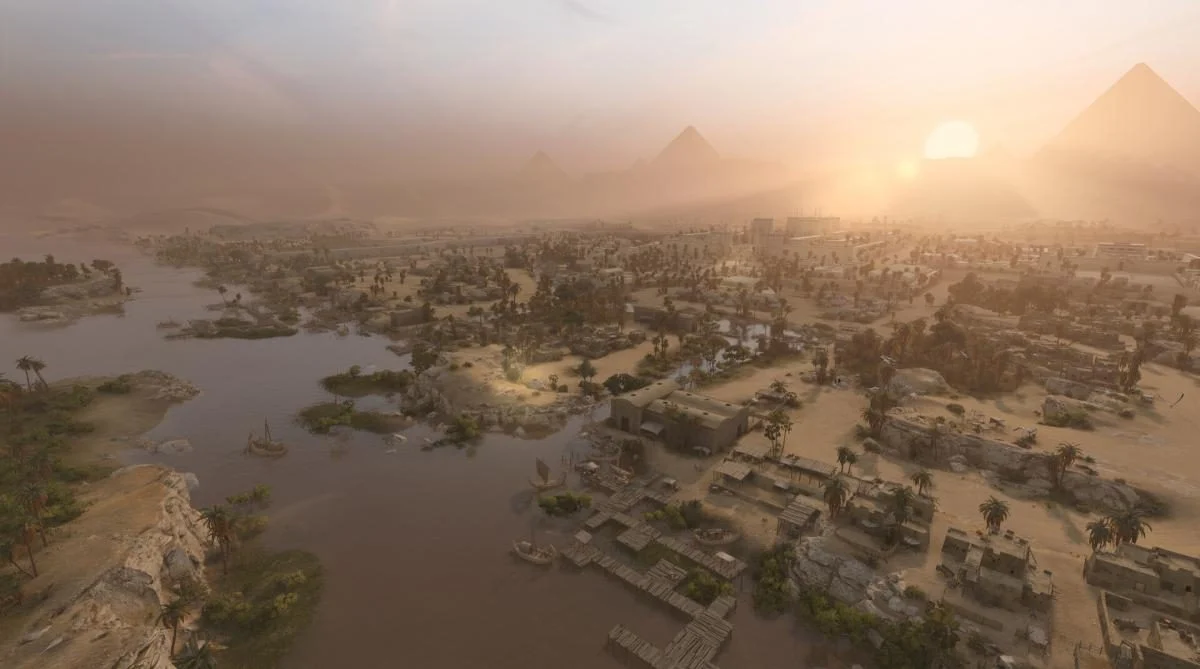Introduction to Total War: Pharaoh
Total War: Pharaoh marks a significant addition to the acclaimed Total War franchise, merging intricate strategy with the rich historical tapestry of ancient Egypt. Developed by Creative Assembly, this game showcases the franchise’s consistent innovation and dedication to delivering immersive experiences that captivate both veteran players and newcomers alike. Set during a transformative era in Egyptian history, players will navigate the complexities of managing empires, engaging in monumental battles, and forging alliances, all while steeped in a visually stunning representation of ancient civilization.
The historical period depicted in Total War: Pharaoh is replete with rich narratives and major events, providing a unique backdrop for strategic gameplay. Players will encounter the grandeur of the Pharaohs, the intricacies of Egyptian politics, and the relentless struggles for power among rival factions. Through meticulously researched historical elements, the game not only enriches players’ understanding of ancient Egyptian culture but also offers a dynamic arena where tactics and military might reign supreme.
Total War: Pharaoh stands out for its breathtaking graphics that bring the ancient world to life. The visual fidelity of landscapes, architecture, and units offers players an unparalleled connection to the past, fostering a deeper engagement with the gameplay. The series’ hallmark of balancing grand strategy with real-time tactical combat is evident, allowing players to experience the thrill of commanding armies while also managing resources and making critical decisions that affect the course of their civilization. The combination of strategic depth and stunning visuals ensures that Total War: Pharaoh is poised to be a highlight in the genre of grand strategy games.
Gameplay Mechanics and Features
Total War: Pharaoh expertly weaves a rich tapestry of gameplay mechanics that showcase both real-time tactics and turn-based strategy, hallmarks of the Total War series. Players are thrust into the heart of ancient Egypt, where they must navigate battles, diplomacy, and city management. The game emphasizes the importance of logistics and resource allocation in state-building, allowing players to manage cities that serve as the backbone of their military campaigns and economic power.
The city management system is intricately designed, offering various developmental paths. Players can enhance their cities through agriculture, trade, and military infrastructure, all while dealing with the cultural and technological advancements specific to different factions within the game. Each faction, inspired by ancient Egyptian cultures, comes with unique units, structures, and bonuses, encouraging diverse playstyles and strategic experimentation. For example, the warrior class of one faction may be exceptional in melee combat, while another faction may boast highly skilled archers.
Large-scale battles are at the core of the gameplay experience in Total War: Pharaoh. Players command thousands of soldiers in epic confrontations, employing formations and tactics to outmaneuver their opponents. The new mechanics introduced in this installment, such as sandstorms that can impact visibility and troop morale, elevate the battlefield experience, requiring players to think critically about terrain and weather conditions during engagements.
Furthermore, diplomacy plays a crucial role in shaping the geopolitical landscape of ancient Egypt. Engage with rival factions through alliances and trade agreements or wage war to assert dominance. This nuanced approach to strategic decision-making helps to enhance the overall enjoyment of the game. Players must balance military ambitions with diplomatic relations, making every choice result in significant consequences for their burgeoning empire.
Historical and Cultural Context
Total War: Pharaoh immerses players in the rich tapestry of ancient Egyptian civilization, a society renowned for its monumental achievements in art, architecture, and governance. Set in the late Bronze Age, a period marked by significant geopolitical upheaval, the game encapsulates the essence of this era, showcasing renowned civilizations such as the New Kingdom of Egypt, as well as their counterparts, including the Hittites and the Levantine city-states.
The game effectively intertwines historical events and figures into its narrative, allowing players to interact with legendary rulers such as Ramses II, famously known for his military prowess and monumental building projects. His reign highlighted a time when Egypt was a superpower, exerting influence across a vast region. The portrayal of such iconic figures presents an accurate glimpse into their contributions to civilization, enriching the player’s experience with factual historical context.
Moreover, the mythological framework surrounding ancient Egyptian culture is intricately woven into the gameplay. Divine deities like Osiris, Isis, and Horus not only represent the religious beliefs of the time but also serve as essential elements of the game’s mechanics, offering players advantages or disadvantages based on their interactions with these gods. This nuanced integration of mythology adds depth, allowing players to engage with ancient Egyptian spirituality while strategizing their conquest.
In blending historical narrative with gameplay, Total War: Pharaoh not only entertains but educates. It prompts players to explore the complexities of ancient alliances, trade routes, and cultural exchanges that shaped the Mediterranean world. By examining how different factions, including localized city-states and expansive empires, interacted and clashed, players gain insights into the multifaceted dynamics of ancient politics and warfare.
Community Reception and Future Prospects
Total War: Pharaoh has generated significant buzz since its announcement, reflecting a broad interest from the gaming community. The reception has been largely positive, with players expressing enthusiasm about the setting of Ancient Egypt, which contributes a rich historical backdrop for strategy gameplay. Early access feedback indicates that fans appreciate the game’s attention to detail in both visuals and mechanics, affirming that Creative Assembly’s established legacy continues with this new installment. Players are particularly excited about the innovative features and improvements over past Total War titles, which enhances the overall experience.
Community engagement on forums and social media platforms reveals a strong anticipation for the official release. Gamers have been actively discussing their expectations for Total War: Pharaoh, frequently sharing strategies and expressing their hopes for varied campaign dynamics and in-depth diplomatic options. The feedback from early access versions has been instrumental in shaping the developers’ approach, revealing priorities around balance adjustments and the refinement of AI behavior. Many players took to platforms like Reddit and Discord to emphasize their desire for robust multiplayer options, which could enhance replayability and foster clan-based gameplay.
As anticipation mounts, discussions around potential expansions and updates are also prevalent within the community. Players are vocal about their expectations for future downloadable content that could introduce new factions or larger narratives within this historical context. The integration of community feedback into the development process is crucial, as it not only boosts player involvement but also ensures the game stays relevant in the fast-evolving landscape of strategy gaming. With its strong foundation and the commitment of the developers to refine and expand the game, Total War: Pharaoh holds promising prospects for establishing itself as a notable entry in the Total War series.


No responses yet